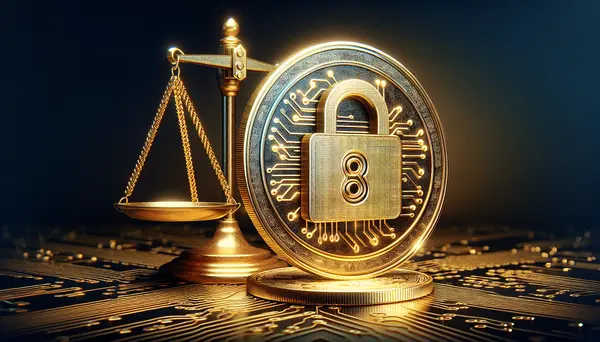Asset Chain
Asset Chain
Discovering Asset Chain: All You Need to Know
An Asset Chain, as the term suggests, refers to a specific blockchain created for a particular digital asset within the sphere of cryptocurrency and blockchain technology. Just as a chain has links, the Asset Chain has many blocks connected to one another, each storing vital information about the digital asset it represents.
Delving Deeper into Asset Chain
Asset Chains are an integral part of many blockchain platforms as they offer a mechanism to manage the lifecycle of individual digital assets. They also facilitate transactions, track ownership, and secure data in a decentralized and immutable manner. Each asset chain is independent but can interact with other chains as needed. Asset Chains can represent a wide range of assets, including, but not limited to, cryptocurrencies, tokens, digital property, or even intangible assets such as patents or copyrights.
Asset Chain in Action
As an example, take a car manufacturer who uses an Asset Chain to track the parts of each vehicle from production to sale. Each part's information, including the supplier's name, manufacturing date, batch number, and more, is stored in an individual block within the Asset Chain. Therefore, each car has its unique Asset Chain that provides transparency and traceability throughout its lifecycle.
Asset Chain Vs. Regular Blockchain
Like a regular blockchain, the Asset Chain is a distributed, decentralized ledger system. However, unlike a traditional blockchain that can contain various types of data, an Asset Chain is dedicated to a singular asset, which gives it its unique name. This allows for greater efficiency and precision when managing the digital asset.
Advantages of Asset Chain
The use of Asset Chain technology has numerous advantages in the digital world. First, it enables the easy tracking of assets, improving security and transparency. Second, it allows for the decentralization of data, thus eliminating the need for a central authority and reducing the chances of fraud. Finally, the use of Asset Chain enhances operational efficiency by streamlining the management and tracking of digital assets.
Top 10 most read posts

Blockchain's Potential Beyond Cryptocurrency
Introduction: Blockchain's Potential Beyond Cryptocurrency When we hear the term "blockchain," most of us instinctively think of cryptocurrencies like Bitcoin and...

The Role of Cryptocurrencies in Venture Capital: A New Frontier
Introduction - Understanding Cryptocurrencies and Venture Capital As technology evolves, so does our understanding of what makes a valuable asset. The...

Mastering Technical Analysis for Bitcoin Trading
Introduction to Technical Analysis for Bitcoin Trading Trading in the cryptocurrency world, particularly Bitcoin, requires careful decision-making and strategic planning. One...

Top 10 ICOs to Watch in 2023
Collateral Network (COLT) Collateral Network (COLT) is a next-generation decentralized lending platform that leverages blockchain technology to facilitate secure and efficient...

Understanding ICOs: Risks, Rewards, and Regulations
Introduction to ICOs Initial Coin Offerings, often shortened to ICOs, are an increasingly popular method of fundraising for new projects in...

Blockchain's Influence on the Automotive Industry
Introduction: Unveiling the Power of Blockchain Blockchain technology is boldly advancing into a variety of industries, utterly transforming our occasional transactions...

Investment Tips for the Budding Crypto Millionaire
Introduction: An Insight into Crypto Investment If you're venturing into the promising world of cryptocurrencies, a solid investment strategy can be...

How to Build a Diversified Crypto Portfolio: A Step-By-Step Guide
Introduction: The Importance of Diversification Investing in cryptocurrencies can be both exciting and rewarding. However, it's crucial to remember that the...

ICO vs IPO: Which is the Better Investment?
Introduction: Understanding ICO and IPO Before delving into the difference between ICO and IPO, it's crucial to understand what these terms...

Bitcoin's Rise and Fall: Historical Analysis
Introduction: Bitcoin's Dynamic Journey Bitcoin, the world's first and most recognized digital currency, is often the subject of dramatic headlines, featuring...
